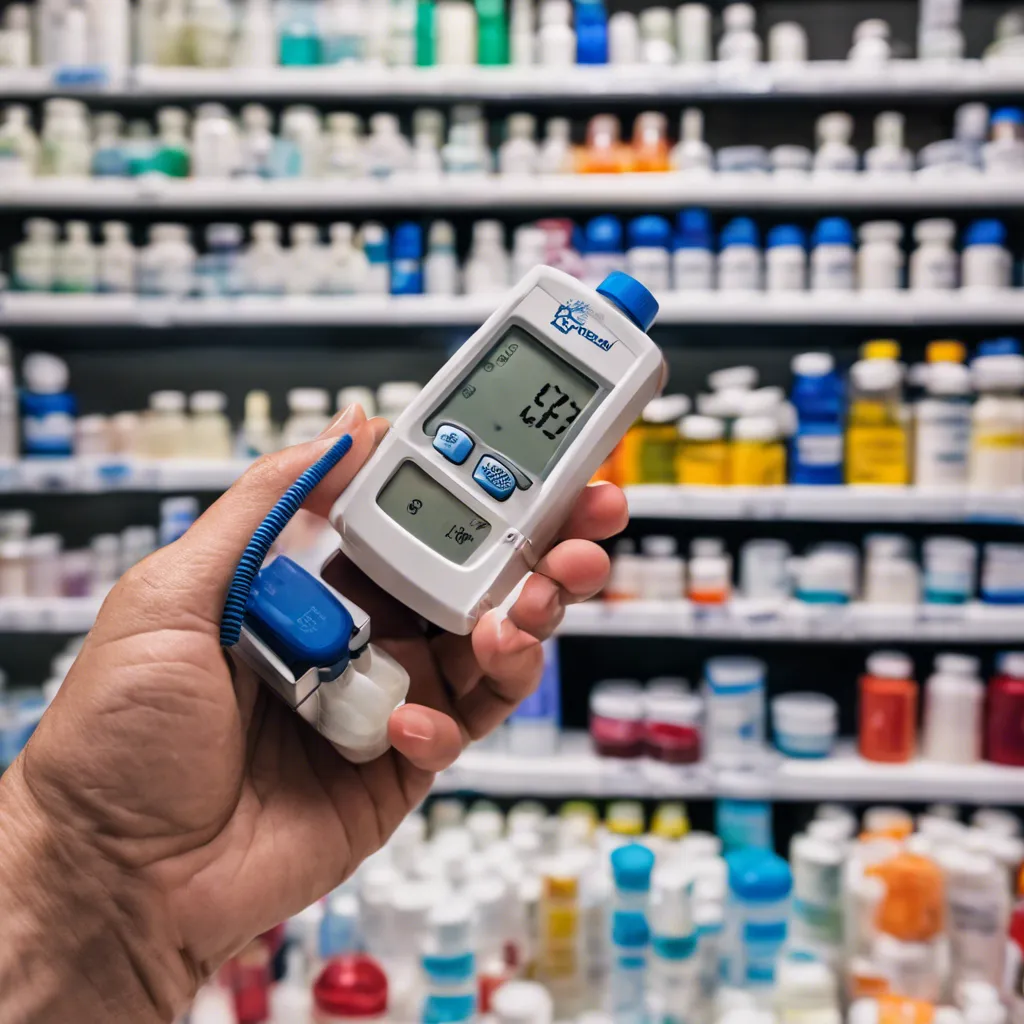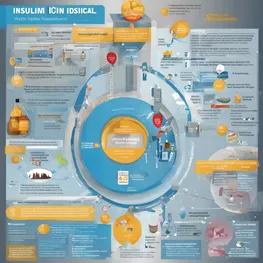Table of contents
- Mastering Medication Management for a Healthier Life
- The Top Medications to Regulate Blood Sugar Levels
- Uncovering the Link between Medications and Blood Sugar Regulation
- Unlock the Secrets of Effective Medication and Blood Sugar Management
- Unlocking the Secrets of Effective Consulting with Healthcare Professionals
Medications play a vital role in managing various health conditions, but did you know they can also affect your blood sugar levels? In this article, we will delve into the complex relationship between medications and blood sugar, exploring how certain drugs can either raise or lower glucose levels. By understanding this impact, individuals can take proactive steps to maintain stable blood sugar while receiving necessary medical treatment.
Mastering Medication Management for a Healthier Life
Medications play a crucial role in blood sugar management by helping regulate insulin production, improving insulin sensitivity, and reducing glucose production. They are essential tools in maintaining stable blood sugar levels and preventing complications of diabetes.
The Top Medications to Regulate Blood Sugar Levels
Managing blood sugar levels is crucial for individuals with diabetes. There are several commonly prescribed medications that can help regulate blood sugar levels effectively. These medications work in different ways to control blood glucose and prevent complications associated with diabetes. Here are some key points to know about the top medications used to regulate blood sugar levels:
- Metformin: This is usually the first-line medication for managing type 2 diabetes. It reduces glucose production in the liver and improves insulin sensitivity in the body.
- Sulfonylureas: These medications stimulate the pancreas to produce more insulin. They are generally used in patients with type 2 diabetes who do not respond well to other medications.
- DPP-4 inhibitors: These drugs increase insulin secretion and decrease glucose production. They are used to lower blood sugar levels in individuals with type 2 diabetes.
- GLP-1 receptor agonists: These medications stimulate insulin production and reduce the release of glucagon. They also slow down the emptying of the stomach, leading to decreased appetite and weight loss.
- SGLT2 inhibitors: These drugs work by blocking the reabsorption of glucose by the kidneys, resulting in increased glucose excretion. They are commonly used to treat type 2 diabetes.
Uncovering the Link between Medications and Blood Sugar Regulation
Uncovering the Link between Medications and Blood Sugar Regulation
- Certain medications, such as corticosteroids, can significantly increase blood sugar levels by promoting glucose release from the liver, reducing insulin sensitivity, and impairing insulin production in the pancreas.
- Other medications, such as beta-blockers, can block the effects of insulin and cause blood sugar levels to rise. These drugs are commonly used to treat high blood pressure and heart conditions.
- Some antidepressant medications can also affect blood sugar levels. For example, tricyclic antidepressants may increase blood sugar by blocking the action of insulin and promoting glucose release into the bloodstream.
- On the other hand, certain medications used to treat diabetes, such as insulin and oral hypoglycemic agents, are specifically designed to lower blood sugar levels by increasing insulin production or improving insulin sensitivity.
- It is important for individuals taking medications to be aware of the potential impact on their blood sugar levels and to monitor levels regularly. Adjustments in diet, exercise, and medication dosage may be necessary to maintain stable blood sugar control.
- In some cases, healthcare providers may need to consider alternative medications or additional interventions to address the impact of certain medications on blood sugar regulation.
Unlock the Secrets of Effective Medication and Blood Sugar Management
Managing medications can be a complex and overwhelming task, but with the right strategies and guidance, it is possible to effectively manage your medications. Whether you are taking medications for a chronic condition or simply want to optimize the benefits of your medications, here are some practical advice to help you navigate the world of medication management:
-
1. Create a Medication Schedule
Develop a schedule to help you remember when to take your medications. Use reminders on your phone or set specific times throughout the day to establish a routine.
-
2. Organize Your Medications
Invest in pill organizers or use labeled containers to keep track of your medications. Sort them by day or time to ensure you stay organized and don't miss any doses.
-
3. Understand Your Medications
Educate yourself about your medications, including their purpose, proper dosage, and potential side effects. Consult with your healthcare provider or pharmacist to clarify any doubts or concerns.
-
4. Communicate with Your Healthcare Team
Maintain regular communication with your healthcare team to discuss any changes in your medications, potential interactions, or side effects you may be experiencing. This will ensure that your medications are optimized for your specific needs.
-
5. Follow Instructions Carefully
Read and follow the instructions provided with your medications carefully. Take them as prescribed, with or without food, and avoid skipping doses or doubling up on missed doses.
-
6. Track Your Progress and Symptoms
Keep a medication journal to track your progress, symptoms, and any changes in your health. This will help you and your healthcare team evaluate the effectiveness of your medications and make any necessary adjustments.
-
7. Store Medications Properly
Ensure that your medications are stored in a cool, dry place, away from direct sunlight and out of reach of children and pets. Check the expiration dates regularly and discard any expired or damaged medications.
-
8. Be Aware of Potential Interactions
Inform your healthcare provider about all the medications you are taking, including prescription drugs, over-the-counter medications, and supplements. This will help avoid any potential drug interactions that can be harmful to your health.
Unlocking the Secrets of Effective Consulting with Healthcare Professionals
Unlocking the Secrets of Effective Consulting with Healthcare Professionals
-
1. Expertise and Knowledge
Healthcare professionals have extensive expertise and knowledge in their respective fields. Consulting with them ensures access to the latest research, treatment options, and best practices. Their guidance will help individuals make informed decisions about their health and receive appropriate care.
-
2. Personalized and Tailored Approach
Healthcare professionals can provide personalized and tailored advice based on an individual's specific needs, medical history, and current health conditions. They take into consideration factors like age, gender, lifestyle, and genetic predispositions to develop an effective treatment plan.
-
3. Avoiding Self-Diagnosis and Misinformation
Consulting with healthcare professionals helps avoid the pitfalls of self-diagnosis and relying on unreliable sources of information. They can accurately diagnose medical conditions, monitor progress, and provide appropriate treatments. This minimizes health risks and ensures the most accurate and reliable information is obtained.
-
4. Coordination and Continuity of Care
Healthcare professionals can coordinate care across different specialties and healthcare settings. They ensure collaboration between various healthcare providers, including primary care physicians, specialists, pharmacists, and therapists. This coordination enhances the continuity of care, improves treatment outcomes, and reduces the likelihood of medical errors or misunderstandings.
-
5. Emotional Support and Empathy
Consulting with healthcare professionals not only provides medical advice but also offers emotional support and empathy. They understand the physical and emotional aspects of health and can provide guidance during challenging times. Their presence can greatly alleviate stress, anxiety, and feelings of uncertainty.
In conclusion, it is crucial for individuals with diabetes to be aware of the potential impact medications can have on their blood sugar levels. Medications such as insulin and certain oral medications play a key role in managing diabetes effectively, but it is important to understand their potential side effects. Close monitoring and regular communication with healthcare providers are essential to ensure that medication regimens are properly adjusted and any adverse effects on blood sugar levels are addressed promptly. By being proactive in understanding the impact of medications on blood sugar, individuals with diabetes can optimize their management strategies and achieve better overall control of their condition.
Frequently asked questions related to medications impact on blood sugar
Which medications can affect blood sugar levels?
Several medications can affect blood sugar levels, including corticosteroids, beta blockers, thiazide diuretics, and some antidepressants. It is important to talk to your healthcare provider about any medications you are taking and their potential impact on your blood sugar.
What are the effects of beta blockers on blood sugar?
Beta blockers can lower blood sugar levels by reducing the release of insulin from the pancreas and decreasing the body's response to low blood sugar. This can be problematic for individuals with diabetes who may already have difficulty regulating their blood sugar levels.
How can medications affect blood sugar management?
Medications that affect blood sugar levels can make it more challenging to manage blood sugar effectively, especially for individuals with diabetes. It is important to monitor blood sugar levels closely and work with a healthcare provider to adjust medication doses or explore alternative treatment options if necessary.
How do corticosteroids affect blood sugar?
Corticosteroids can increase blood sugar levels by interfering with the way insulin works in the body. They can also increase the liver's production of glucose and reduce the body's ability to use glucose effectively. This can lead to high blood sugar levels, especially in people with diabetes.
Do antidepressants impact blood sugar?
Some antidepressants, such as selective serotonin reuptake inhibitors (SSRIs), can affect blood sugar levels. These medications can either increase or decrease blood sugar levels, depending on the individual and the specific antidepressant. It is important to discuss any changes in blood sugar levels with your healthcare provider if you are taking antidepressants.
Can thiazide diuretics affect blood sugar?
Yes, thiazide diuretics can increase blood sugar levels by reducing insulin sensitivity and causing glucose intolerance. If you have diabetes, it is important to monitor your blood sugar levels closely while taking these medications.







